Minimalist Approaches to Hobbies and Leisure
Category: Lifestyle
Discover How Minimalism Transforms Your Leisure Time
If you’re reading this, chances are you’re someone who feels overwhelmed by the clutter and busyness not only in your surroundings but also in how you spend your free time. Perhaps you’ve tried juggling multiple hobbies or leisure activities only to find them more draining than fulfilling. You’re seeking a simpler, more mindful way to enrich your life without the noise and distraction that so often accompany modern pastimes.
This post is designed specifically for individuals like you—those ready to embrace minimalism not just in possessions but in how you engage with hobbies and leisure to find deeper satisfaction and meaning. You’ve likely come across articles about simplifying life or decluttering your home, but this goes further, focusing on practical strategies to streamline your leisure pursuits.
Unlike generic advice, here you’ll find a clear, well-structured guide that addresses common dilemmas such as choosing meaningful hobbies, balancing free time, avoiding hobby overload, and cultivating mindful enjoyment. You'll learn how minimalism can make your leisure time more intentional, refreshing, and aligned with your values.
Whether you’re new to minimalism or looking to refine your approach, this post will give you insightful, actionable steps to simplify your hobbies and embrace leisure in a way that truly revitalizes you.
- Discover How Minimalism Transforms Your Leisure Time
- Understanding Minimalism in the Context of Hobbies and Leisure
- Evaluating Your Current Leisure Activities
- The Benefits of Minimalist Hobbies: Emotional, Mental, and Physical Rewards
- Choosing Meaningful and Sustainable Hobbies
- Streamlining Hobby Materials and Tools: Practical Tips to Minimize Physical Clutter
- Creating a Balanced Leisure Schedule: Strategies for Managing Time Effectively
- Incorporating Mindfulness into Leisure Time: Cultivating Presence and Intentionality
- Digital Minimalism in Leisure: Reducing Screen Time and Enhancing Meaningful Technology Use
- Connecting With Community Mindfully: Suggestions for Social Engagement That Support Minimalist Principles
- Maintaining Flexibility and Evolving Interests: Adapting Your Leisure Pursuits Mindfully
Understanding Minimalism in the Context of Hobbies and Leisure
Minimalism goes far beyond simply decluttering physical possessions—it extends deeply into how we manage our time, attention, and activities. When applied to hobbies and leisure, minimalism means intentionally choosing fewer, more meaningful pastimes that genuinely contribute to your well-being, rather than accumulating a long list of pursuits that fragment your focus and energy. This approach emphasizes quality over quantity, allowing space for genuine enjoyment, creativity, and relaxation.
By embracing minimalism in hobbies, you shift from a mindset of constant busyness and overcommitment to one of purposeful engagement and clarity. It involves critically assessing how your leisure activities align with your core values and needs, reducing distractions, and prioritizing those experiences that recharge you mentally and emotionally. This mindful selection process helps cultivate greater joy, serenity, and fulfillment in your free time, making your leisure not just a break from work but a rich source of personal growth and happiness.
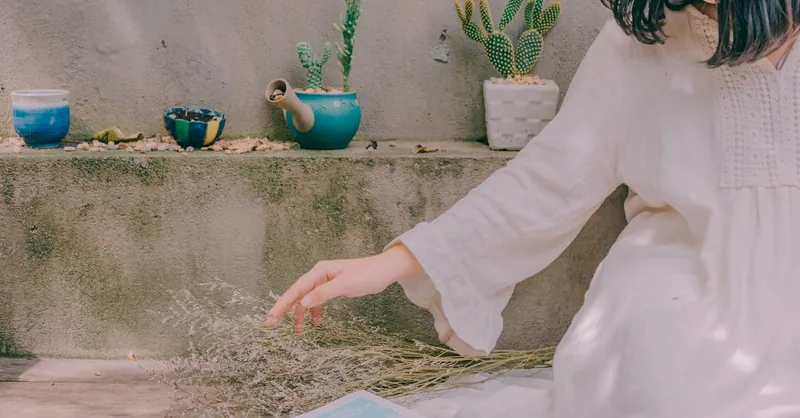
Image courtesy of Min An
Evaluating Your Current Leisure Activities
Before embracing a minimalist approach to hobbies, it’s essential to thoughtfully evaluate your existing leisure activities. Take a step back and honestly assess which pastimes truly add value and bring joy versus those that leave you feeling drained, stressed, or overwhelmed. This reflection is key to releasing unnecessary commitments and making room for what genuinely enriches your life.
How to Assess Your Leisure Activities
Start by creating a comprehensive list of your hobbies and regular leisure pursuits. Next, ask yourself critical questions for each activity:
-
Does this hobby align with my core values and personal interests?
Activities that resonate with your beliefs and passions tend to sustain lasting satisfaction. -
How does this pastime impact my energy and mood?
Does it leave you feeling refreshed and motivated, or tired and mentally cluttered? -
Am I engaging in this activity out of genuine desire or external pressure?
Distinguishing social expectations from authentic enjoyment helps avoid unnecessary commitments. -
Does this activity contribute positively to my mental or physical well-being?
Hobbies that support relaxation, creativity, or physical health are valuable investments of your free time. -
Is this hobby creating clutter—in your schedule, space, or mind?
Consider if it demands excessive resources, time, or mental bandwidth that outweigh its benefits.
By systematically reflecting on these questions, you can identify hobbies to keep, modify, or let go, paving the way for a clearer, more fulfilling leisure routine. This intentional evaluation helps prevent hobby overload and promotes a mindful selection of pastimes that enhance your overall quality of life.
Benefits of a Thoughtful Leisure Inventory
- Reduces time wasted on unfulfilling activities
- Frees up energy to deepen engagement with meaningful hobbies
- Supports mental clarity by decluttering your schedule and mind
- Aligns your free time with your personal growth and well-being goals
Evaluating your leisure activities through this minimalist lens ensures that your hobbies serve you, rather than exhaust or overwhelm you, fostering a balanced and enriching lifestyle.
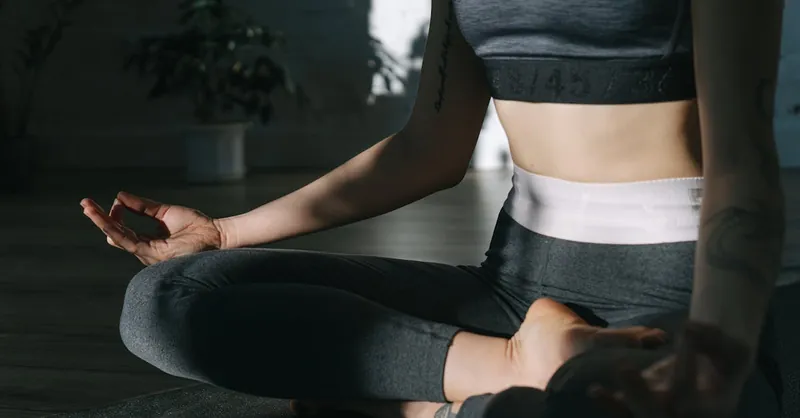
Image courtesy of Ivan Samkov
The Benefits of Minimalist Hobbies: Emotional, Mental, and Physical Rewards
Adopting minimalist hobbies offers profound emotional, mental, and physical benefits that extend well beyond simply having less on your plate. By streamlining your leisure activities to focus on what truly matters, you create space for more meaningful experiences that nourish your whole being.
Emotional Benefits
Engaging in fewer, more intentional hobbies reduces the emotional clutter that often accompanies overcommitting to numerous pastimes. This simplification leads to:
- Reduced stress and anxiety, as you're no longer juggling multiple activities that compete for your attention and energy.
- A deeper sense of contentment and fulfillment because your leisure aligns closely with your personal values and interests.
- Enhanced emotional resilience, as focused hobbies foster mindfulness and present-moment awareness, helping you regulate mood and cultivate calm.
Mental Benefits
Minimalist leisure pursuits sharpen your mental focus and foster creativity by channeling your energy into fewer but higher quality activities:
- Improved concentration arises when distractions are minimized, allowing you to enter a state of flow more easily.
- Simplified hobbies encourage deeper learning and mastery, which builds confidence and intrinsic motivation.
- Living with intentionality around leisure helps clear mental clutter, promoting greater clarity, peace of mind, and cognitive rest.
Physical Benefits
Minimalism in hobbies can also enhance your physical well-being by promoting activities that support relaxation and health instead of exhaustion or burnout:
- Reduction in physical fatigue due to avoiding overextension across too many commitments.
- Increased opportunities for active leisure such as mindful walking, yoga, or gardening, which are manageable and restorative.
- Encouragement to listen to your body’s needs, fostering a balanced routine that honors both activity and rest.
By embracing minimalism in your hobbies, you unlock a lifestyle where leisure is not just a break from productivity but a powerful source of rejuvenation. This holistic spectrum of benefits—from emotional ease to mental clarity and physical wellness—highlights why simplifying your hobbies is a transformative step toward a more balanced, joyful life.
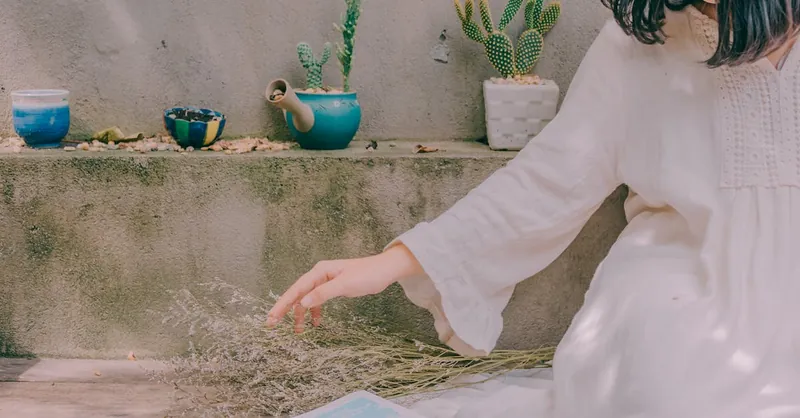
Image courtesy of Min An
Choosing Meaningful and Sustainable Hobbies
When adopting a minimalist lifestyle, selecting meaningful and sustainable hobbies is crucial for long-term enjoyment and fulfillment. The goal is to focus on fewer activities that deeply resonate with your personal values, support your lifestyle, and contribute positively to your well-being instead of chasing trendy or passive pastimes that quickly lose appeal. This intentional approach not only maximizes the emotional and mental benefits of leisure but also helps you avoid the burnout and clutter associated with overcommitting.
How to Choose High-Impact Hobbies Aligned with Your Values
-
Reflect on Your Core Values and Interests
Choose hobbies that authentically connect with what matters most to you. Whether it’s creativity, connection with nature, personal growth, or community involvement, your leisure pursuits should reinforce these values to sustain lasting motivation and joy. -
Prioritize Sustainability Over Trends
Avoid hobbies that feel fleeting or superficial just because they are popular. Instead, focus on activities that can evolve with you over time, require manageable resources, and fit naturally within your current lifestyle and energy levels. -
Consider the Quality of Engagement
Opt for hobbies that encourage active participation and mindfulness rather than passive consumption. Engaging deeply—whether through crafting, learning a musical instrument, or gardening—invites flow and a sense of accomplishment. -
Assess Practicality and Accessibility
Sustainable hobbies are those that do not overwhelm your schedule or budget. They should integrate harmoniously with your daily life, allowing consistent practice without stress or excessive demands on your time and space.
Benefits of Intentional Hobby Selection
- Enhances long-term satisfaction by focusing on activities that truly nurture your soul.
- Reduces decision fatigue by limiting options to what genuinely matters.
- Supports a balanced lifestyle by preventing overcommitment and scheduling conflicts.
- Fosters sustainable growth in skill and enjoyment rather than shallow or short-lived interest.
By consciously selecting hobby pursuits that are meaningful, sustainable, and aligned with your lifestyle, you embrace a minimalist philosophy that enriches your leisure time with purpose, depth, and lasting joy—making every moment of free time a valuable investment in your well-being.
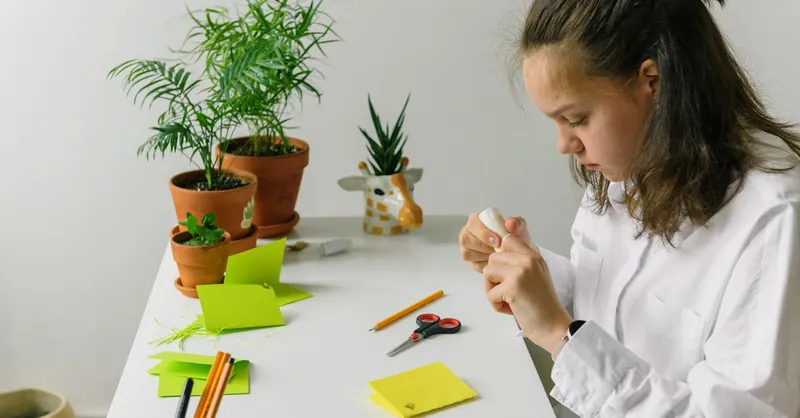
Image courtesy of Ksenia Chernaya
Streamlining Hobby Materials and Tools: Practical Tips to Minimize Physical Clutter
One of the key challenges in maintaining a minimalist approach to hobbies and leisure is managing the physical materials and tools these activities often require. Accumulating excessive or specialized equipment can quickly lead to clutter, detracting from the calm and simplicity that minimalism fosters. To streamline your hobby supplies effectively, prioritize multi-use, high-quality items that serve several purposes and minimize the number of single-use or redundant tools.
Practical Strategies for Minimizing Hobby Clutter
-
Choose Versatile, Durable Tools
Invest in high-quality tools that can be used across multiple hobbies or tasks. For example, a good set of basic art supplies can serve drawing, painting, and crafting hobbies alike. Versatile gear reduces both your upfront cost and the physical space needed for storage. -
Adopt Mindful Consumption Practices
Before purchasing new materials, ask yourself: - Do I truly need this item, or can an existing tool suffice?
-
Will this add meaningful value to my hobby experience?
Avoid impulsive purchases that may contribute to clutter without enhancing your enjoyment. -
Limit Quantities and Set Clear Boundaries
Define a practical limit for how many supplies or tools you keep. Minimalism isn’t about deprivation; it’s about intentionality. Maintaining a curated collection encourages creativity within constraints and prevents overwhelming your storage space. -
Regularly Review and Declutter Hobby Items
Schedule periodic assessments of your hobby materials to identify items that are unused, outdated, or no longer aligned with your interests. Donate, recycle, or sell these to maintain an orderly and inspiring workspace.
By streamlining your hobby materials and tools, you create a functional, clutter-free environment that supports focused engagement and relaxation. This mindful approach not only simplifies the physical landscape of your hobbies but also reinforces the minimalist values of intentionality and quality over quantity—ultimately enriching your leisure time with greater ease and enjoyment.
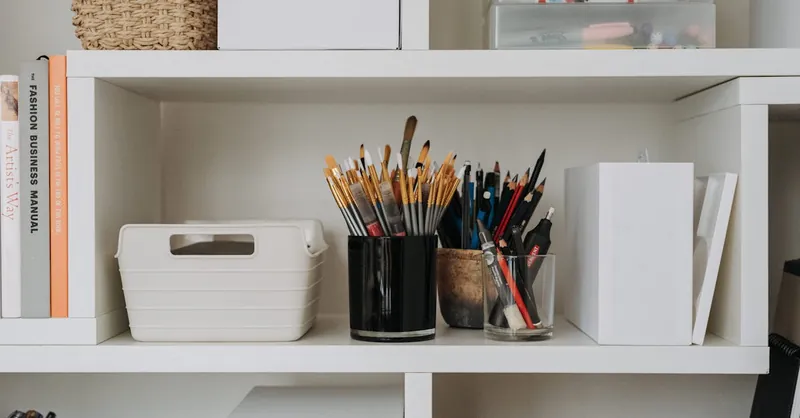
Image courtesy of Anete Lusina
Creating a Balanced Leisure Schedule: Strategies for Managing Time Effectively
A core principle of minimalism applied to hobbies and leisure is developing a balanced leisure schedule that protects your time and energy, ensuring activities remain truly refreshing rather than causing burnout or overwhelm. Overcommitment to multiple hobbies can lead to fragmented focus, stress, and ultimately diminish the stress-relieving benefits that leisure should provide. To maintain a harmonious, sustainable rhythm, it’s essential to manage your free time intentionally and mindfully.
Key Strategies for Building a Balanced Leisure Routine
-
Prioritize Your Leisure Activities
Based on your evaluation and selection of meaningful hobbies, assign priority levels to each. Focus your energy on the top one or two pursuits that bring the most rejuvenation and joy. This prevents scattered efforts and allows deeper engagement. -
Set Clear Time Boundaries
Define specific time blocks dedicated solely to leisure activities. Scheduling these windows transparently helps avoid spontaneous overcommitment and ensures consistent, guilt-free downtime. Remember, quality of leisure matters more than quantity. -
Incorporate Rest and Unstructured Time
Balance structured hobbies with periods of unstructured leisure that invite relaxation without expectations—such as a quiet walk, meditation, or simply sitting with a book. These moments help restore mental clarity and prevent cognitive overload. -
Practice Saying No to Excess Commitments
Minimalism in leisure often requires the discipline to decline new hobby invitations or social activities that do not align with your priorities. Protecting your schedule preserves energy for what truly matters. -
Regularly Reassess Your Leisure Balance
Just as you evaluate your hobbies, periodically review your leisure calendar to ensure your time investments continue to serve your well-being and personal growth. Adjust frequency and duration of activities as needed to maintain freshness and avoid burnout.
By implementing these effective time management strategies, you foster a sustainable leisure schedule that maximizes the restorative power of your hobbies. This intentional approach not only guards against burnout from overcommitment but also deepens your enjoyment, making your free time genuinely refreshing, stress-relieving, and aligned with minimalist principles.

Image courtesy of nappy
Incorporating Mindfulness into Leisure Time: Cultivating Presence and Intentionality
Mindfulness is a powerful complement to minimalist hobbies, transforming how you experience and enjoy your leisure time. By cultivating presence and intentionality while engaging in activities, you deepen your connection to the moment, enhance your enjoyment, and promote lasting mental well-being. Rather than rushing through hobbies or multitasking, practicing mindfulness encourages slowing down, fully immersing yourself, and savoring each experience—making even simple pastimes profoundly fulfilling.
How to Cultivate Mindfulness in Your Leisure Activities
-
Focus Your Attention Fully
When engaging in a hobby, aim to concentrate completely on the activity itself. Turn off distractions like phones or background noise and bring your awareness to the sensory details involved—the feel of materials, sounds, movements, or visual elements. -
Set Clear Intentions Before Starting
Before beginning a leisure pursuit, take a moment to clarify why you are doing it. Are you seeking relaxation, creativity, connection, or personal growth? Setting a conscious purpose helps align your mindset with the activity and enhances your sense of fulfillment. -
Practice Gentle, Non-Judgmental Awareness
Accept whatever thoughts or feelings arise as you engage in your hobby without self-criticism or pressure for perfect performance. This compassionate stance reduces stress and opens you to deeper enjoyment and flow. -
Engage the Senses Fully
Mindfulness invites you to experience hobbies through all your senses — noticing colors, textures, sounds, tastes, and smells with curiosity and appreciation. This rich sensory engagement grounds you in the present and enriches your leisure experience. -
Reflect Briefly After Leisure Time
Spend a few moments post-activity to acknowledge how the experience made you feel physically and emotionally. This reflection reinforces mindfulness habits and helps you recognize which hobbies sustain your well-being most effectively.
Benefits of Mindful Leisure Practice
- Enhances relaxation and reduces stress by anchoring your awareness in the present moment
- Increases satisfaction and joy by fostering deep engagement and presence
- Supports mental clarity and emotional regulation, aiding in the relief of anxiety and restlessness
- Cultivates a greater sense of gratitude and appreciation for your free time and chosen pastimes
Incorporating mindfulness into a minimalist approach to hobbies transforms leisure from a passive pastime into a meaningful, restorative practice. This elevated intentionality encourages you to slow down, appreciate simplicity, and harness the full mental health benefits of your leisure time—ultimately supporting a balanced, peaceful, and joyful minimalist lifestyle.
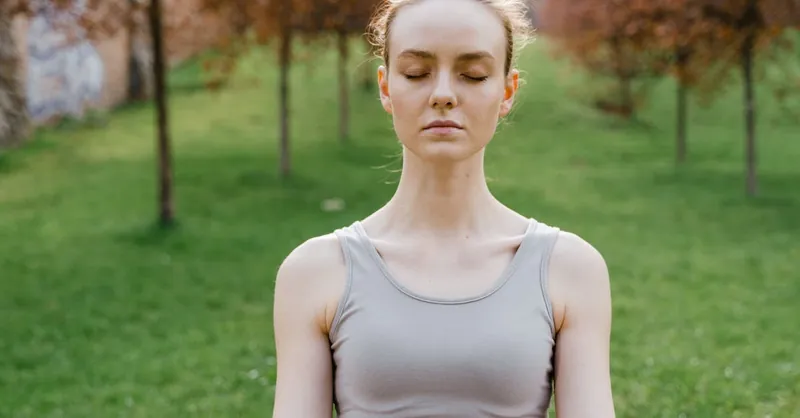
Image courtesy of MART PRODUCTION
Digital Minimalism in Leisure: Reducing Screen Time and Enhancing Meaningful Technology Use
In today’s digital age, screen time and digital distractions have become significant obstacles to truly minimalist leisure. While technology offers valuable tools and new forms of entertainment, uncontrolled digital consumption often fragments attention, hampers relaxation, and detracts from the mindful enjoyment of hobbies. Embracing digital minimalism in your leisure activities means intentionally reducing unnecessary screen engagement while still harnessing technology’s benefits in purposeful and balanced ways.
Practical Approaches to Minimize Digital Distractions in Leisure
-
Set Clear Boundaries for Screen Use
Designate specific times or contexts when screens are allowed during leisure—for example, limiting social media or streaming to defined windows. Avoid habitual or mindless scrolling by replacing default digital habits with more intentional, offline activities. -
Prioritize Analog Hobbies over Digital Ones
Whenever possible, choose leisure activities that involve tactile, physical engagement—such as reading printed books, gardening, crafting, or outdoor exercise—to reduce reliance on digital devices and foster deeper relaxation. -
Curate Your Digital Content Mindfully
If using technology for hobbies (like learning apps, digital art, or music), select high-quality, purposeful tools that align with your minimalist values. Regularly review subscriptions and apps and eliminate those that contribute to digital clutter or distraction. -
Create Tech-Free Zones and Rituals
Establish areas or times in your home, such as during meals or before bedtime, where digital devices are completely absent. This supports mental rest and helps cultivate a richer, tech-free leisure environment. -
Use Technology to Enhance, Not Replace, Real-World Interaction
Leverage digital platforms for meaningful connection—like video calls with loved ones or online courses that deepen skills—while avoiding passive consumption that can lead to fatigue and disengagement.
By consciously managing your digital leisure habits, you reclaim your attention, presence, and mental clarity, allowing technology to serve as a tool rather than a distraction. This empowers a lifestyle of balanced digital minimalism, where technology enhances, rather than undermines, the depth and quality of your free time. Integrating these principles ensures your hobbies contribute to relaxed, focused, and fulfilling leisure experiences, perfectly aligned with minimalist living.

Image courtesy of Eren Li
Connecting With Community Mindfully: Suggestions for Social Engagement That Support Minimalist Principles
One of the most enriching aspects of hobbies and leisure is the opportunity to connect with others, yet in a minimalist lifestyle, the focus shifts from accumulating numerous social interactions to cultivating deep, meaningful relationships. Engaging with community mindfully means prioritizing quality over quantity in your social life, choosing interactions that align with your values and foster authentic connection, rather than spreading yourself thin across many superficial gatherings.
To strengthen your social engagement while embracing minimalism, consider these key strategies:
-
Choose Intentional Social Circles
Seek out groups or communities that reflect your interests and minimalist values—whether it’s a local book club focused on mindful reading, a crafting circle with sustainable practices, or a meditation group emphasizing simplicity. These focused communities provide deeper connection and support without overwhelming your schedule. -
Opt for Small, Purposeful Gatherings
Rather than attending large, frequent social events, prioritize intimate gatherings with close friends or like-minded individuals. Smaller groups foster authentic conversations, reduce social fatigue, and allow more meaningful shared experiences tied to your hobbies. -
Combine Socializing with Mindful Activities
Integrate social engagement into your chosen minimalist hobbies, such as attending a pottery workshop, joining a community gardening project, or participating in a local hiking group. These activities encourage presence and purpose while naturally building relationships. -
Set Boundaries to Protect Your Energy
Be selective with your social commitments and don’t hesitate to say no to invitations that don’t align with your priorities or leave you feeling drained. Protecting your time ensures that social interactions remain fulfilling and don’t detract from your well-being. -
Leverage Digital Platforms Mindfully
Use online communities and platforms that support your hobbies and values to maintain connection when in-person engagement isn’t feasible. Participate actively but intentionally, avoiding passive or overwhelming digital socializing.
By embracing mindful social engagement, you nurture a supportive, authentic community that enriches your minimalist leisure journey. This approach emphasizes quality interactions that nurture well-being and personal growth, perfectly complementing the simplicity and intentionality at the heart of minimalism.
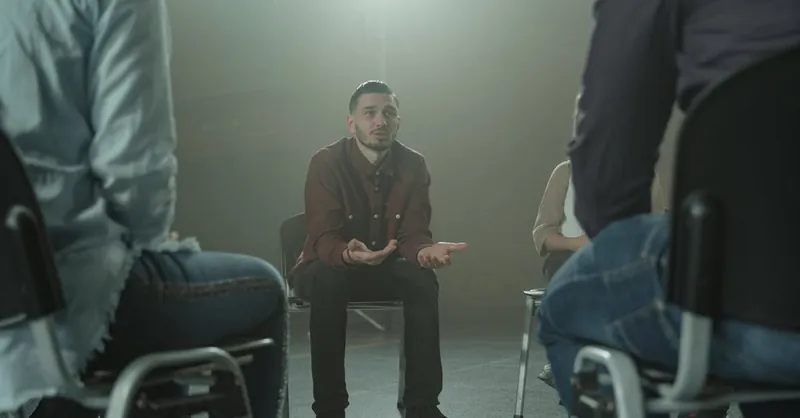
Image courtesy of Tima Miroshnichenko
Maintaining Flexibility and Evolving Interests: Adapting Your Leisure Pursuits Mindfully
A fundamental aspect of a minimalist approach to hobbies and leisure is embracing flexibility and recognizing that your interests and needs naturally evolve over time. Rather than rigidly clinging to a fixed set of activities, minimalism encourages you to regularly revisit and adjust your leisure pursuits to ensure they continue to serve your well-being without becoming obligations or sources of stress. This adaptive mindset allows your hobbies to remain meaningful, relevant, and refreshing as your life circumstances and personal growth unfold.
Why Flexibility Matters in Minimalist Leisure
-
Prevents Burnout and Monotony
Even the most fulfilling hobby can lose its spark if approached as a duty or if it no longer aligns with your current preferences. Periodically reassessing your leisure helps avoid burnout by making space for novelty and joy. -
Supports Personal Growth and Changing Priorities
As your values, energy levels, and lifestyle shift, your hobbies should reflect these changes. Flexibility enables you to drop activities that no longer resonate and explore new ones that better fit your evolving self. -
Maintains a Balanced, Stress-Free Schedule
Adjusting commitments in response to your life’s demands ensures your leisure remains restorative instead of burdensome. It reinforces the minimalist principle of intentionality—engaging only in activities that genuinely contribute to your happiness.
How to Cultivate an Evolving, Flexible Hobby Practice
-
Regularly Set Aside Time for Reflection
Schedule quarterly or biannual check-ins with yourself to evaluate how your current hobbies impact your well-being and whether adjustments are needed. -
Stay Open to Experimentation
Allow room to try new activities without pressure to master or commit long-term. Minimalism is about quality, not quantity, but occasional exploration can refresh your leisure routine. -
Streamline by Letting Go
When a hobby starts feeling like a burden—be it due to time constraints, loss of interest, or unnecessary clutter—give yourself permission to pause or stop it respectfully. -
Reinvest Energy Mindfully
Redirect focus and resources to pursuits that align with where you are now, deepening engagement rather than spreading yourself thin.
By maintaining flexibility and regularly evolving your leisure pursuits, you ensure that your hobbies remain a source of genuine pleasure, relaxation, and personal enrichment—free from pressure or guilt. This dynamic, mindful approach keeps your minimalist lifestyle fresh and fully aligned with your changing needs, preserving the clarity, simplicity, and joy that minimalism promises.
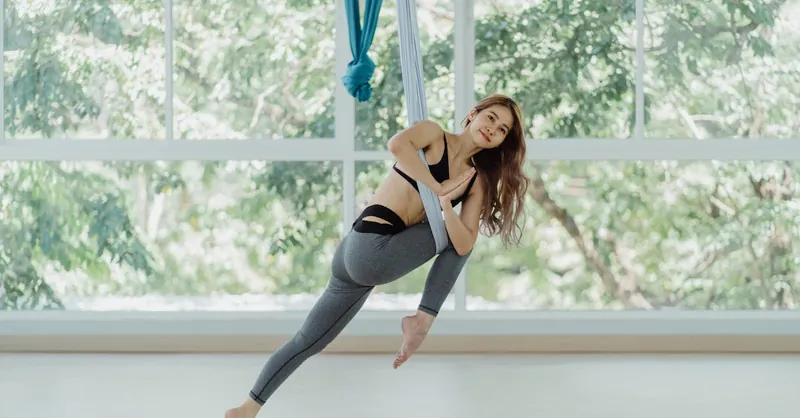
Image courtesy of Ketut Subiyanto
